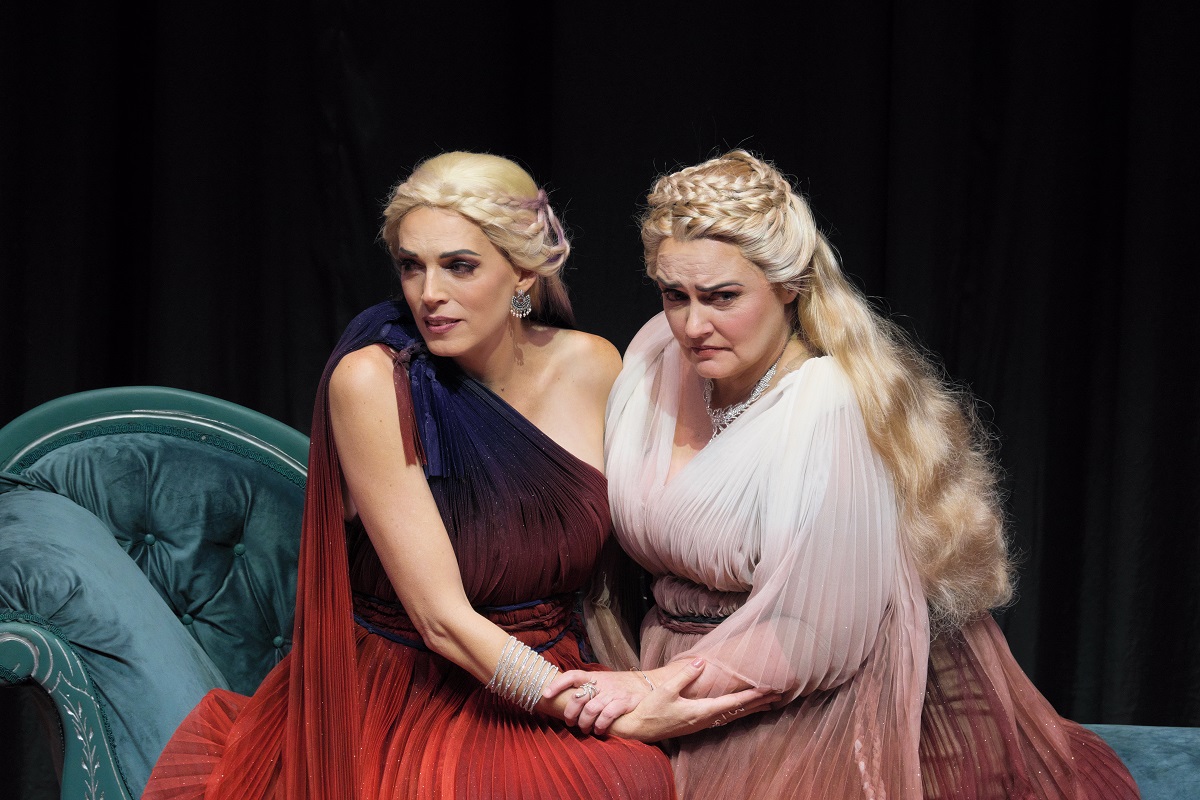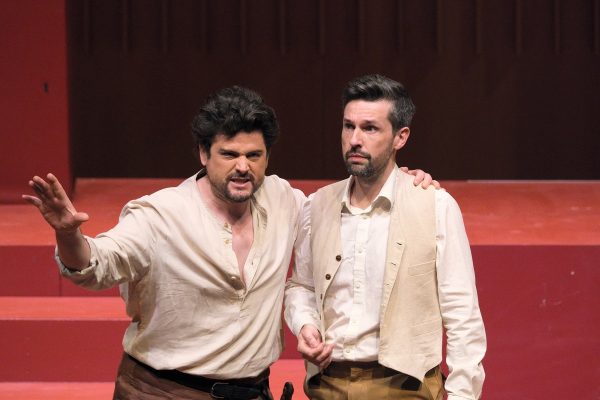
Opera / “Alcina”, by Georg Frideric Handel, National Opera. At Llewellyn Hall, repeated December 10. Reviewed by ANGELA GIBLIN.
IN the premiere performance of “Alcina” on December 8 there were two changes in the cast: conductor Graham Abbott was replaced by Luke Spicer; and Sally-Anne Russell, who was scheduled to sing Bradamante, was replaced by Cassandra Seidemann, who sang the role, and Zsuzsi Soboslay, who walked the role.
“Alcina” was first performed at Covent Garden in 1735. This dazzling opera was Handel’s last great success in his lifetime. There were almost no revivals after that until the 1950s, when Joan Sutherland and Richard Bonynge presented it for the Handel Opera Society in London in 1957. Thus this wonderful work was revived and brought back into the repertoire.
“Alcina” is a magic opera. The heroine of the title is a sorceress, who has created through her magic powers a magnificent palace in a beautiful landscape, out of a desert island, to lure her lovers. When she tires of one, she transforms him into a rock or an animal or a tree.
Is this believable, or an irritating operatic indulgence? Mozart’s opera, “The Magic Flute” has magic in it. So does the musical fantasy, “Frozen”. There has been quite a bit of magic in Sydney theatres recently. The protagonist of Shakespeare’s “The Tempest,” presented by the Sydney Theatre Company, is Prospero, a sorcerer and Pinchgut Opera has just mounted a brilliant production of “Médée” by Marc-Antoine Charpentier – Medea is a sorceress.

But human stories are really paramount in “Alcina”, who goes from amorous voluptuary to spurned lover, and is lost because she allows herself to be transformed by love. She sings one of the most extraordinary arias in the opera, “Ah, mio cor”, as she realises she loves Ruggiero despite herself.
Emma Matthews as Alcina gave a wonderful performance of this starry role, which makes great demands on the singer’s range, emotionally and vocally: fioritura, line, the high, the low, and intense emotion – sensuality, calculation, rage, utter despair, love.
Rachelle Durkin was an excellent Morgana, and also found the humour in the role, to the amusement of the audience. Her range is extensive, and combines with great flexibility, and virtuoso ability.
Russell Harcourt gave a fine Ruggiero, with a beautiful tone and very good intonation. His aria, “Verdi prati,” was moving and simple. As well as being a master of the virtuosic and ornate, Handel was master of the seemingly simple, of the quiet and even of silence, and this aria is a beautiful example. It also touches on one of the opera’s central themes: illusion: “Green meadows, you will lose your beauty”.
Bradamante was sung from the side of the stage by Cassandra Seidemann, reading from the score. Seidemann has a golden sound, and rescued the performance with it, as did Zsuzsi Soboslay, walking the role.
John Longmuir sang Oronte with an exciting tenor sound and dramatic stage presence, while bass Jud Arthur evinced a sovereign presence and a satisfyingly powerful timbre as Melisso. Katrina Wiseman was an excellent Oberto, lively on stage, and vocally thoroughly competent.

The chorus made a fine contribution to the evening, as did the dancers, for whom Handel composed such gorgeous music.
Peter Coleman-Wright’s stage direction was effective and used the available resources of the stage wisely.
Promising young conductor Luke Spicer led members of the Canberra Symphony Orchestra at very short notice, with skill and musical insight. The balance between orchestra and stage was mostly excellent. Notable were fine string playing, some lovely recorder duos, and very enjoyable French horns.
The lighting, by Mark Dyson, was striking, especially for Alcina’s rage.
Unfortunately the surtitles were not fully functional.
“Alcina” is definitely worth hearing and seeing. Support your local opera!
Who can be trusted?
In a world of spin and confusion, there’s never been a more important time to support independent journalism in Canberra.
If you trust our work online and want to enforce the power of independent voices, I invite you to make a small contribution.
Every dollar of support is invested back into our journalism to help keep citynews.com.au strong and free.
Thank you,
Ian Meikle, editor




Leave a Reply